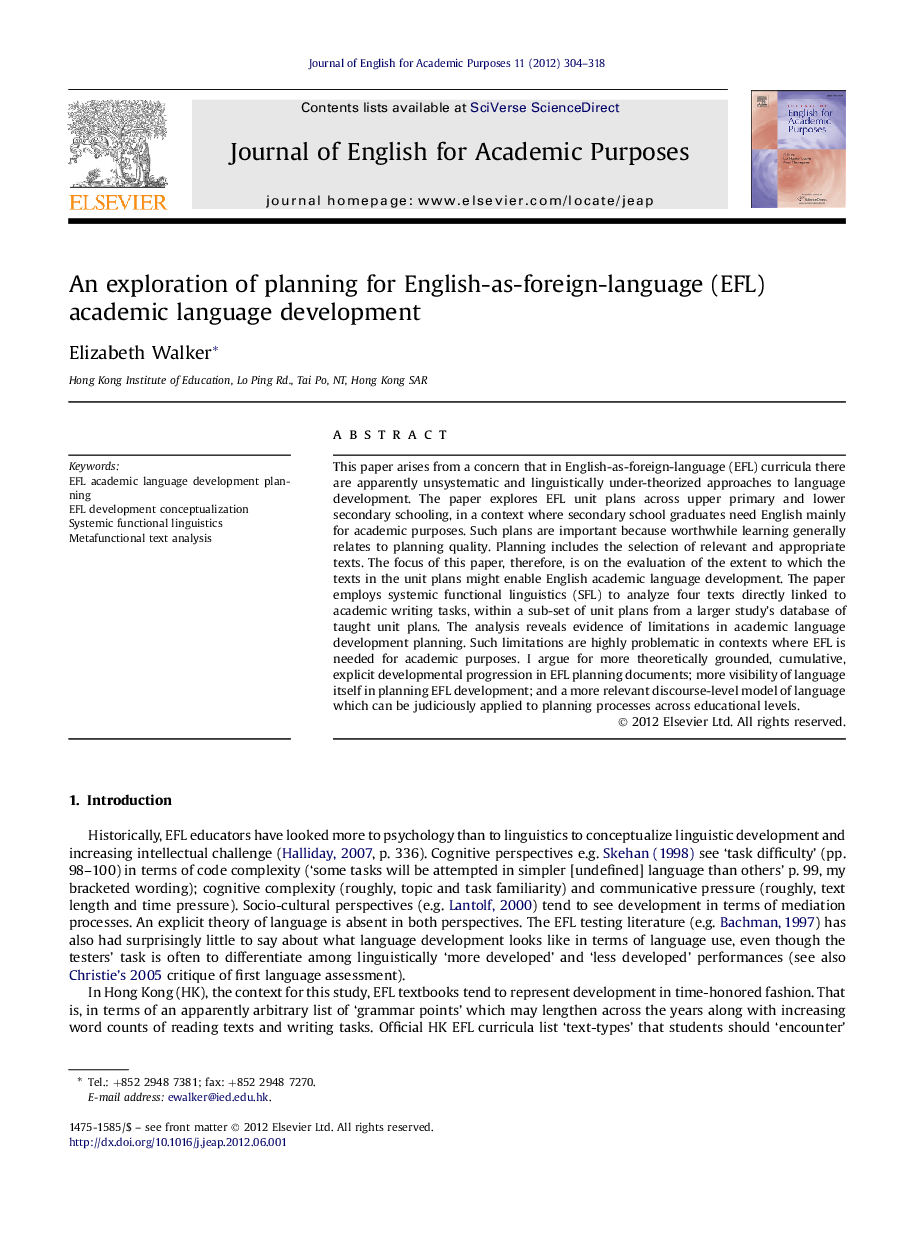| Article ID | Journal | Published Year | Pages | File Type |
|---|---|---|---|---|
| 360303 | Journal of English for Academic Purposes | 2012 | 15 Pages |
This paper arises from a concern that in English-as-foreign-language (EFL) curricula there are apparently unsystematic and linguistically under-theorized approaches to language development. The paper explores EFL unit plans across upper primary and lower secondary schooling, in a context where secondary school graduates need English mainly for academic purposes. Such plans are important because worthwhile learning generally relates to planning quality. Planning includes the selection of relevant and appropriate texts. The focus of this paper, therefore, is on the evaluation of the extent to which the texts in the unit plans might enable English academic language development. The paper employs systemic functional linguistics (SFL) to analyze four texts directly linked to academic writing tasks, within a sub-set of unit plans from a larger study's database of taught unit plans. The analysis reveals evidence of limitations in academic language development planning. Such limitations are highly problematic in contexts where EFL is needed for academic purposes. I argue for more theoretically grounded, cumulative, explicit developmental progression in EFL planning documents; more visibility of language itself in planning EFL development; and a more relevant discourse-level model of language which can be judiciously applied to planning processes across educational levels.
► EFL academic language development planning lacks multi-level language model. ► Metafunctional tools could inform EFL texts' facilitation of language development. ► Study texts' academic development potential was unsustained. ► Higher language visibility vital for systematic language development planning.
